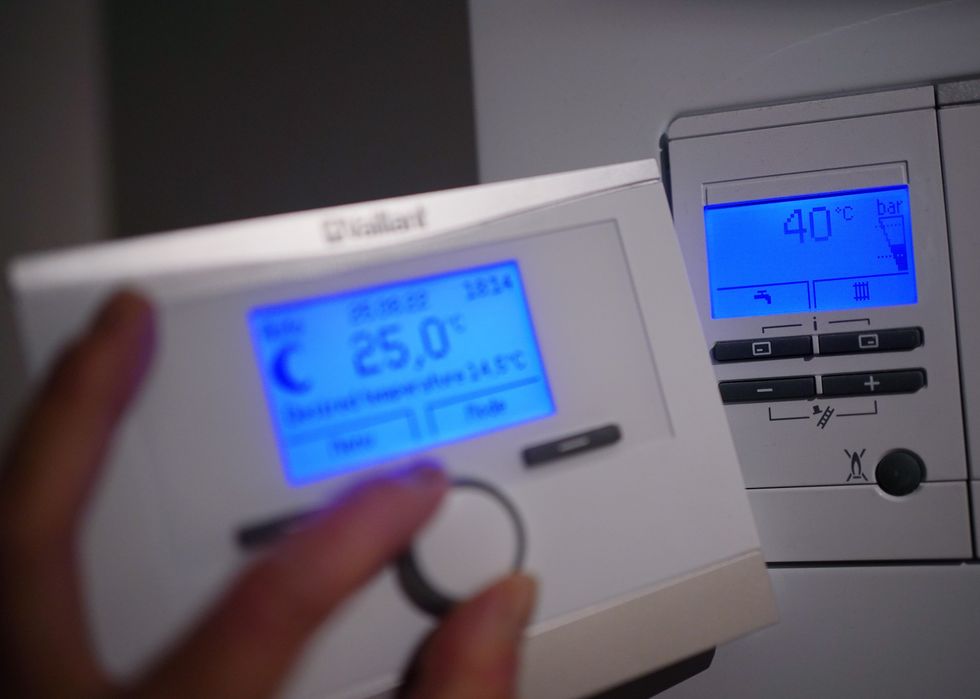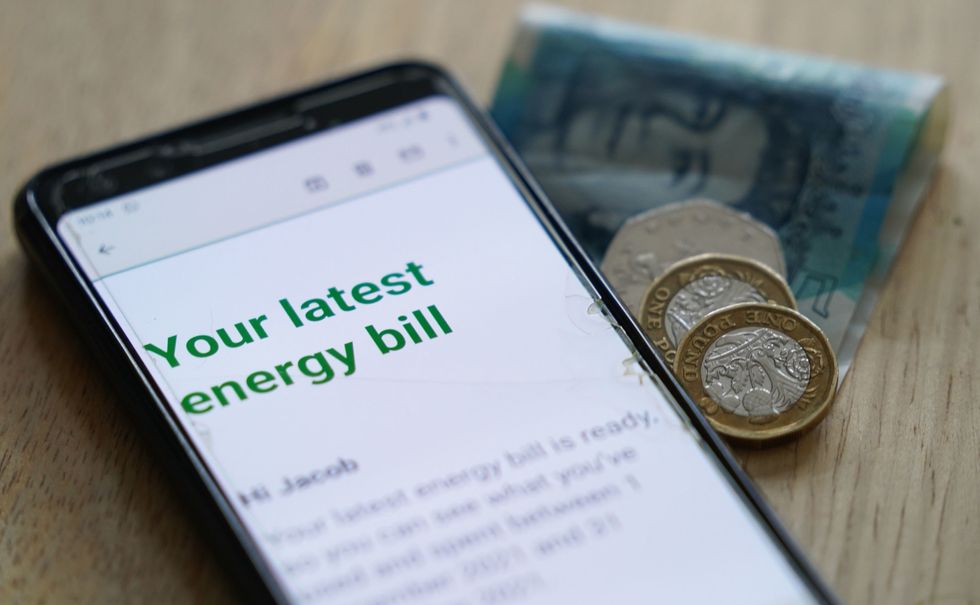Energy bills to rise in January - Ofgem energy price cap to increase by £94 to £1,928 a year

Ofgem has announced the new energy price cap for January 1 to March 31
|GETTY

Energy bills are set to rise for millions of households in January
Don't Miss
Most Read
Latest
Ofgem has confirmed the energy price cap will increase by five per cent on the previous quarter from January 1.
For an average households paying by direct debit for dual fuel, it equates to a rise of £94, to £1,928 a year.
The price cap, set every quarter, sets a maximum that firms can charge customers for energy bills.
However, it's a cap on the unit rate and standing charge, so if people use more energy than average, they could pay more than the aforementioned figure.

The new energy price cap will come into effect from January 1 to March 31
|PA
Ofgem said the price increase is driven almost entirely by rising costs in the international wholesale energy market due to market instability and global events, particularly the conflict in Ukraine.
The energy regulator recently announced new rules for suppliers, making clear they should be prioritising enquiries from vulnerable customers who need help and proactively contacting households if they miss two monthly or one quarterly payment, to see if they are struggling with bills, and offer support - such as affordable payment plans or, if appropriate, repayment holidays - if so.
Jonathan Brearley, CEO of Ofgem, said: “This is a difficult time for many people, and any increase in bills will be worrying. But this rise – around the levels we saw in August – is a result of the wholesale cost of gas and electricity rising, which needs to be reflected in the price that we all pay.
“It is important that customers are supported and we have made clear to suppliers that we expect them to identify and offer help to those who are struggling with bills.
“We are also seeing the return of choice to the market, which is a positive sign and customers could benefit from shopping around with a range of tariffs now available offering the security of a fixed rate or a more flexible deal that tracks below the price cap.
“People should weigh up all the information, seek independent advice from trusted sources and consider what is most important for them whether that’s the lowest price or the security of a fixed deal.”
Richard Neudegg, director of regulation at Uswitch.com, said the rate increase would "bite" during the coldest period of the year, when households need to use the most energy to stay warm.
He added: “This means energy bills are likely to be the highest they’ve ever been for most homes this winter. Between January and March, average bills will be £46 more expensive than the same period last year when the government’s Energy Bill Support Scheme was in place.
“With bills so high, it’s important to ensure you are only using and paying for the gas and electricity you need.
"Tracking your usage can help uncover simple ways to save energy, such as lowering wash temperatures or changing your cooking methods."
LATEST DEVELOPMENTS:

Energy bill payers are being urged to contact their energy supplier as soon as possible if they are struggling to pay bills
|PA
Mr Neudegg urged people struggling to make payments not to "bury their head in the sand" and to get in touch with their energy provider as soon as possible.
He said: "They should be able to advise on payment plans, as well as any support schemes or grants you may be eligible for.
“Fixed tariffs are the only way to get any certainty about what you will pay for your energy. There are some deals worth considering, but generally open market offers are still limited.
“The price cap is no longer fit for purpose and gives providers little incentive to offer better deals. The system needs reforming to create a more competitive market that also protects households.”







